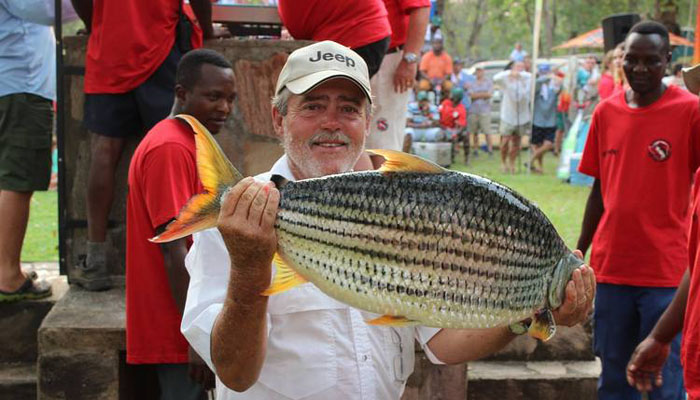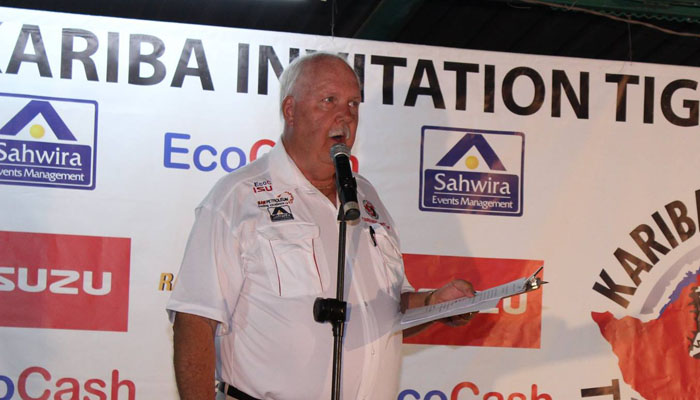
The Sunday Mail

The Kariba Invitational Tiger Fishing Tournament, which — all things being equal — should be Zimbabwe’s largest private sector-driven tourism window, came and went a fortnight ago.
And Zimbabweans did not really take the bait.
This is our story explaining why we feel KITFT 2017 was not what it could have been.
We left for Kariba on a Thursday and as on previous journeys around the country, we were very apprehensive of a heavy police presence on the road.
But, alas! Not even a single flagging by the police to and from Kariba. This is certainly a turn up for the books.
When we stopped over in Chinhoyi on our way back, interacting with a colleague who is a police officer, we were informed that a memo had been sent out (which was not meant for public consumption) that for the sake of tourism and business, the police had been asked not to be heavy-handed on the roads.
The memo may have been too little too late for KITFT 2017 but Rod Bennet — the organising director — said, “We have not lost hope, we want this tournament to get back to what it used to be, and we are already planning for next year’s event. We believe in this tournament, its potential as a sport, as a tourism event, as a leisure pastime and we wouldn’t want to give up that easily.”
Whilst the perception created by the heavy presence of police on our highways over the past months is on the way to being corrected, the next hurdle for Bennet and team is to get the Zimbabwe Parks and Wildlife Management Authority to be on the same page with them.
Participating in the tournament costs a little too much.
“If you want to fish ordinarily, Parks will charge you US$5 per day. But for this tournament, participants are charged US$20 per person per day. This is a three-day tournament and for a four-member team, that is US$240. Just Parks’ fees. We haven’t factored in the fuel for practice sessions and participation, fuel for travel to and from Kariba, accommodation and food,” said Bennet.
Tinashe Farawo, the spokesperson for ZimParks and who was at the tournament, said a win-win solution could be found.
“But we have been promised an engagement for the past five years,” charged Bennet.
Besides Farawo and his team from ZimParks, Sugar Chagonda — the Zimbabwe Tourism Authority spokesperson – and his team were also present, confirming Government’s interest in the KITFT.
Though Bennet said the tournament was open to all, it looks otherwise. And this could be because of the costs.
For instance, either as an individual or as a team, the first and foremost item on the checklist to be ticked is a fishing boat, an accessory which ordinarily is not found at many residences.
Up next is the vehicle to tow the boat to Kariba. Yes, you can use a smaller car but it is much easier with a bigger engine.
Add ancillary costs like fuel for practice sessions, participation, travel to and from Kariba, accommodation and food, and the Parks fees, and what you have is an event for the well off.
Whilst the drop to 55 teams for this year’s tournament might look sudden and disheartening, Bennet is of the view that the tournament has reached its nadir and from next year it will be back to business as usual.
“There have been issues around conservancy, issues which we are quite aware of and we have, in the past, experimented with ‘catch-and-release’ and there are discussions to bring this format in future competitions.
“Basically what we are saying is, an angler catches, weighs and releases the tiger back into the water. So there are a number of technological issues that we need to address, like the capture of such data, how it can be collated and authenticated.
“Which again brings to the fore the question of the $20 ZimParks’ fees, if someone is catching and releasing, in essence they are not fishing, so why should they be charged US$20?
“All said and done, we are cognizant that we need to use our resources sustainably and the catch-and-release option is one way of ensuring that our tiger fish keep on breeding and that the tournament does not die.”
Another issue that has been of concern is that of fish poaching, which naturally has an effect on the quality and quantity of tiger fish caught.
Farawo said ZimParks’ rangers were always on patrol and would appreciate co-operation not just from fishers, but from the broader Kariba community as they collectively derive benefits from the sustainable exploitation of the lake’s resources.
The organisers of KITFT are looking forward to a brighter day and have pencilled October 10, 11 and 12 as the dates for next year’s edition.
“We are already in full swing working on next year’s event and we are hoping that the numbers will be better than this year. In February we will hold the traditional Test of the Best, where the top 10 winners will compete for honours.
“This tournament is held on a catch-and-release format, a format which we want to sharpen and embrace in full in future editions of KITFT. After the February meet, it will be all full swing for the October tournament. And we are hoping that tiger fishing will, definitely, find its step next year. It has to come to the table and be counted as the premier sporting, tourism and leisure event of the year for Zimbabwe.”




